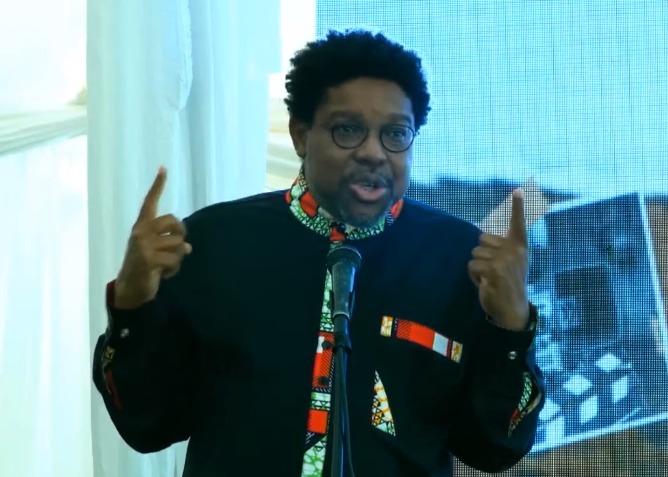The mass killing of people that occurred in Matabeleland and parts of Midlands in the 1980s in Zimbabwe was a genocide, an international crime, an international law expert has said.
From 1982 to 1987, an estimated 20 000 people, mostly Ndebele, were beaten, tortured, burnt, hacked to death or shot dead while others were forcibly disappeared.
The government has not classified these atrocities a genocide, as authorities prefer to use a watered-down phrase – “historical disturbances” but human rights experts have unreservedly pointed out Gukurahundi was a genocide.
Human rights advocate and legal expert, Siphosami Malunga, said calling out atrocities for what they are is a step forward.
“What was Gukurahundi? In terms of international law what was it? Were these crimes against humanity? Were they war crimes, was this a genocide? There’s a lot of debate. You say it was genocide, they say, ‘no, no, it wasn’t all Shonas who came to kill Ndebeles? Do you eve understand what genocide is?” he said during the launch of the Healing and Reconciliation Film Festival, hosted by the Centre of Innovation and Technology Monday.
“You don’t need every Shona to kill Ndebele for it to be genocide. Five people can commit a genocide and five of them can be Ndebele and can commit a genocide against Ndebeles. You hear them say, ‘no, how was it genocide when (one of the founding fathers of Zanu, who was classified a Ndebele – Enos,) Nkala was there.’ Do you even understand what genocide is before you even start telling me Nkala was part of it? You can kill your own people, it’s possible.”
Malunga, executive director at Open Society Initiative for Southern Africa (OSISA), explained that Gukurahundi was an international crime against humanity.
“There’s no question about it. There were crimes against humanity, whose definition is a widespread systematic attack against a civilian population. Was Gukurahundi widespread, was it systematic, was it an attack on civilians? That’s it,” he said, noting courts had a standard definition of such crimes.
“Go the International Criminal Court, that’s how they define crimes against humanity. That’s how the International Criminal Tribunal for (the former) Yugoslavia defines it, same with the Criminal Court in Rwanda and the Special Court in Sierra Leone.”
Malunga underscored Gukurahundi was genocide and defined it as “the total or partial destruction of a group of people by virtue of their identity.”
“The identities are listed, only one exception is the political identity. Of course, the crimes listed is murder, mass murder, forcible deportation, rape, remember that 60 little girls were raped at a school in Korodziba (Tsholotsho). The oldest was no older than 16 years. Then boys were forced to rape the girls as well for pleasure now. How can you say there was no crime against humanity when mass burning, beating, torture took place,” said the legal expert.
“You say it was a genocide, you hear, ‘no, no. There was no attempt to kill Ndebeles.’ Come on who are you fooling, even (the late former president Robert) Mugabe himself admitted it was a genocide.”
Malunga recalled that when Mugabe was asked for his thoughts on Gukurahundi some years back at the State House, he said, “‘…you know the Ndebele party…’”
But Malunga questioned, “when ZAPU was ever a Ndebele party?”
“ZAPU had Nziramasanga, Nyandoro, Musikavanhu. ZAPU was the most un-Ndebele party you can ever see and that was the problem many people were having with Nkomo. But it was convenient for Mugabe to say it was a Ndebele party. That then tells you what Mugabe’s thinking and the intention was, which was to go and kill these Ndebeles because in his mind these Ndebeles support ZAPU so you cut off the ZAPU support system but you are really targeting Ndebeles.”
“Mugabe didn’t even hide it. Of course, we all know that in our villages when they (Fifth Brigade army) came, they made us sing songs in Shona. We know that if you screamed ‘maiwe’ you were spared. We know that they would separate people in buses after looking at their Identity Cards. If you were not Ndebele, you would be spared,” Malunga said.
“Don’t tell us it was not a genocide, we know it was a genocide.”

